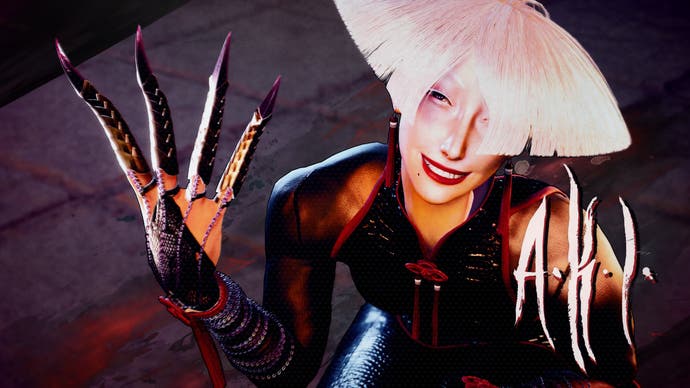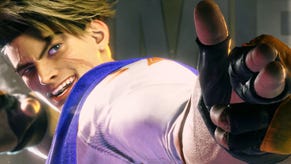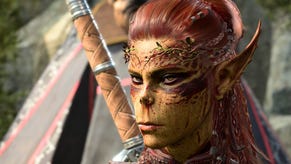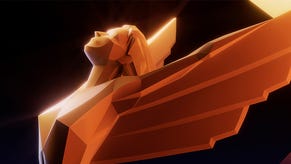How Street Fighter 6's fighting fools helped me finally master fighting games
Electropankration.
Oh to be a fly on the wall when they pitched the Street Fighter 6 intro movie. See, there are rules for fighting game cinematics. You need a montage of assorted beefcakes, flexing and strutting for the camera, then coming to blows against the crescendo of a heavy rock track. These conventions are sacrosanct and cannot be broken. Everything from Tekken, to Guilty Gear, to King of Fighters, to Street Fighter 5 follows the same recipe. Only this time Street Fighter 6 decided, no, let's not do that, and instead how about we do a 1970s proto-rap-style piece of rhythmic poetry a la Gil Scott-Heron? With a neon graffiti aesthetic? And in lieu of a social message, let's get really existential about the meaning of strength! Reader, I do not know how this got past upper management. I cannot imagine how they sold it to shareholders. I don't understand why one of the biggest franchises decided to fiddle with the formula. But it's a breath of fresh air and poses that crucial question: What is strength?
This might seem trivial, but in the context of fighting games, it almost makes sense. These games are notoriously difficult. Many use motion inputs, which for newcomers can take days to pull off reliably. Then you have to link them into tightly-timed, multi-hit combos. And then you have to whip out your combos in the middle of a match, all while blocking everything your opponent is hitting you with, desperately looking for an opening, and anticipating whatever sinister mind-game nonsense they'll throw out next. And for what? So you can go online and, maybe, if you're lucky, not get utterly eviscerated by some rando in their bedroom halfway across the planet. Why bother? The SF6 cinematic reaches the only obvious conclusion. 'We're all a bunch of fools'.
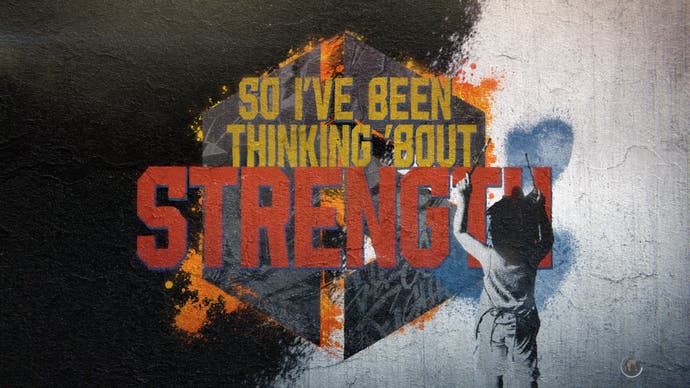
I'm a bigger fool than most. For years, I'd get so hyped on fighting game trailers that I'd buy them all at launch. I paid full price for Tekken 7 and Injustice 2 and Samurai Shodown, and each time I'd enter ranked and just get humbled or humiliated or teabagged by Batman. When Street Fighter 5 came out, I wanted to get good so badly I even got a professional arcade stick, angrily rattling it while yet another Ken shoryu'd me in the face. So when I bought Street Fighter 6, I knew it was a mistake. Except, this time, miraculously, it clicked. I don't 100 percent know why this was the one, but it has something to do with Street Fighter 6's wonderful cast of fighting fools.
Capcom have realised that, in the relatively sparse visual landscape of the fighting game, character models are the primary canvas for storytelling; and they've elected to tell as many vibrant and variegated stories as possible. Of course, there's no shortage of classically-proportioned beauty - Cammy still has her lycra leotard and newcomer Jamie has abs for days. But it's clear that Capcom wants to represent a broad range of body-types, personalities, and identities. Marisa, the Roman gladiator, has the physique of a titan. Silver-haired JP, the main antagonist, conceals sinister secrets beneath a dapper demeanour. Manon, the French judo ballerina, moves with the grace and poise of a swan. And these character quirks not only add narrative texture, they often help you learn the game.
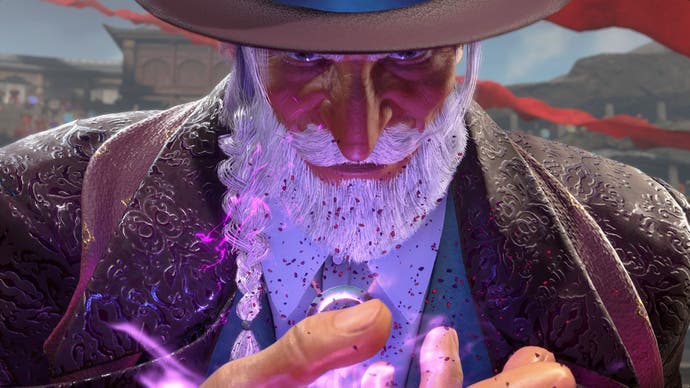

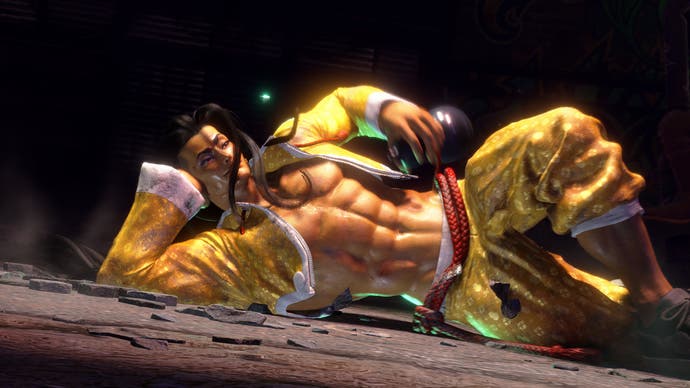
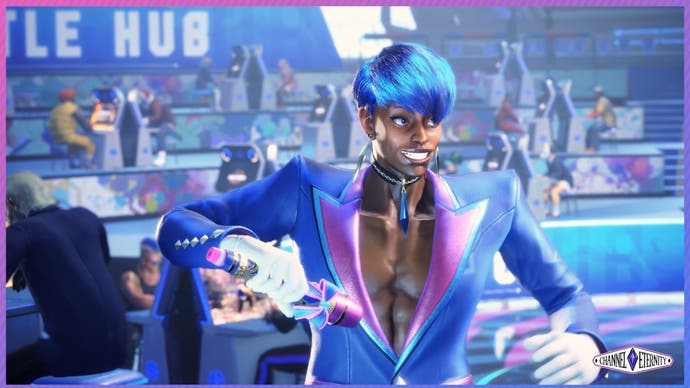
Case in point is series protagonist Ryu, the first character I picked up. He's essentially just a generic dude in a karate gi, but Capcom have somehow fashioned him into a monomaniacal martial ascetic. Every straining inch of the man embodies fighting game spirit - a single-minded obsession with improvement, footwork, fundamentals, and the drive to fight stronger opponents. You can see it in the tooth-grinding set of his jaw at the victory screen, or the way he encourages opponents to get up whenever he scores a knockdown. You can even see it in his DLC outfit where, though superficially well-dressed in a natty jacket, his jeans have been so ripped and scuffed from sparring they've faded white.
It's also reflected in his moveset, which forces you to learn the fundamentals. Ryu taught me the controls: how to throw a fireball; how to backdash; how to play an honest neutral game. His kit is centred around fair play - dodging through projectiles, uppercutting jump-ins, or spacing out whiffed moves with a nasty mid-screen thrust-kick. And all this got me from Iron to Gold rank. But Ryu was encouraging me to play too fair! When I scored a hit, I was backing off. When I knocked people down, I was honourably letting them stand right back up again. And this is not how you play Street Fighter, so I made a change.
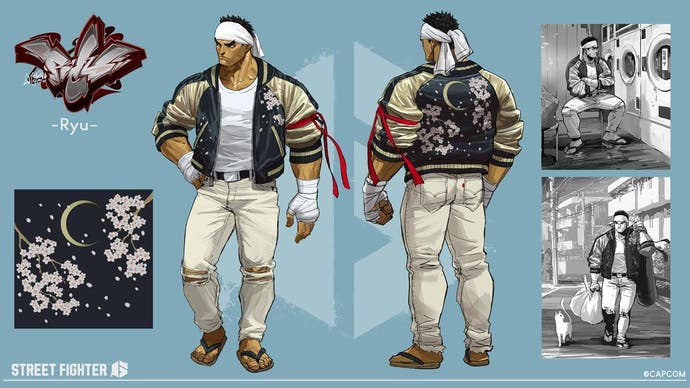
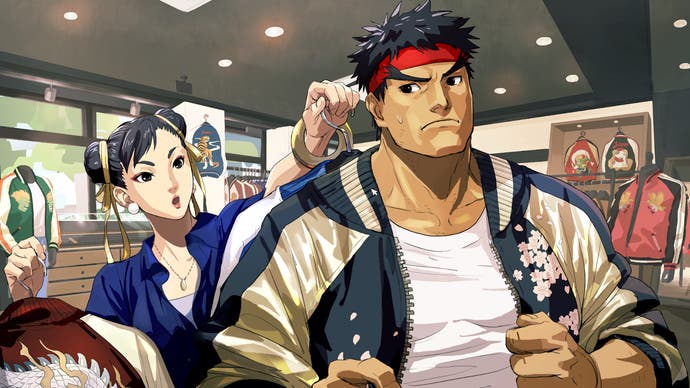
My next character was MI6 operative Cammy White. Everything about her, from her clipped English accent to her triangular silhouette, is an arrow pointing forwards. Cammy's moves all shoot across the screen. Knock your opponent down with her 'spiral arrow' and you land next to them, pressing your advantage by winding up another attack as they're trying to stand. This teaches the art of knockdown guessing games. See, while they're rising, they don't have time to attack. If they try - and they will try - you just hit them again. Eventually they'll block. But, if they block you can grab them. And if they jump your grab, they're vulnerable to attacks! It's rock, paper, scissors, but the odds are in your favour and your opponent doesn't always know the rules.
Cammy also taught me the 'frame trap'. These are moves which, when blocked, give just enough time for your opponent to lower their guard, but not enough time to land an attack before your next blow connects. A trap! And if they fall for it, you knock them down again! Rinse and repeat until you bait out an unsafe reversal, which you can punish even harder. These tricks took me to Diamond rank. But I was becoming over-reliant on unga-bunga forward movement. Opponents were starting to suss me out. So I made one last switch, this time to newcomer A.K.I.
A.K.I. is a master poisoner, hair turned white from chemical-exposure, half-mad from toxic fumes. She's modelled after a viper and all her movements have serpentine, deadly fluidity, wriggling under fireballs and springing up with fangs bared. And though her approach options are weak, her kit is built around patience, setting up poisons and keeping your opponent at arms length until you find an opening to start your lethal offence.
A.K.I. taught me anticipation. She taught me the 'shimmy', where you bait your opponent into grabbing, duck back at the last moment, then lunge. She taught me the art of the 'setup' where you do a dreadful snaking dance, throwing them off rhythm, tricking them into thinking it's their turn, then catching them when they act. Critically A.K.I. also taught me defence, biding your time, blocking blows, waiting for them to take a risk, and turning the tables.
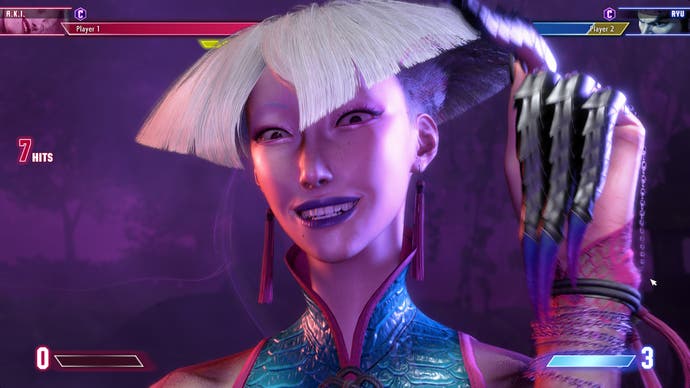
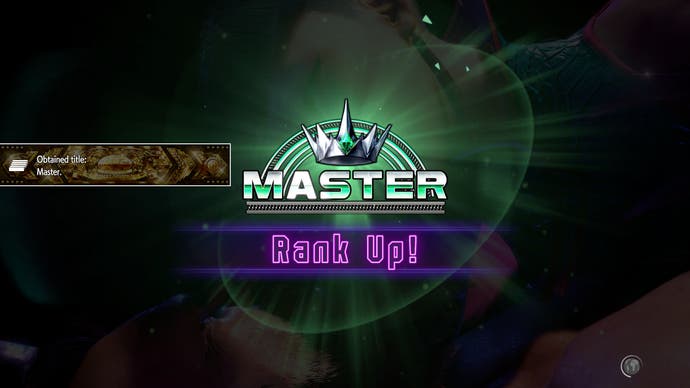
Finally, after 200 hours, A.K.I. pushed me through to 'Master', the highest rank. And you know what I learned? I'm still not that strong. There are still people who can slap me around in straight sets. I still get teabagged by angry Kens. But I also learned it doesn't matter, because I'm no longer here to win. I just want to learn more. I want to learn Chun Lee, whose long-legged kicks and pokes will iron out my iffy neutral game. I want to learn Dee Jay and bamboozle my opponents with feints and mixups. I want to learn JP and zone people from across the screen using hard reads and devious conditioning.
And that's what I love about Street Fighter 6's philosophy. Because getting 'strong' isn't really about godlike reactions, or even flashy combos - it's about being a fighting game weirdo. It's about being a tryhard Ryu, watching hour-long theory videos, learning the absolute minutiae, and enjoying every sweaty minute of it. Or a tricksy little A.K.I., labbing your fancy setups until they're hard-coded in muscle memory. Or a single-minded Cammy, analysing your weaknesses and overcoming them, like a straight arrow heading ever forwards. So what is strength…? Forget about strength. It's the wrong question. Strength is a by-product; a symptom. Street Fighter 6 teaches you something much better: How to be a fool for fighting games.
